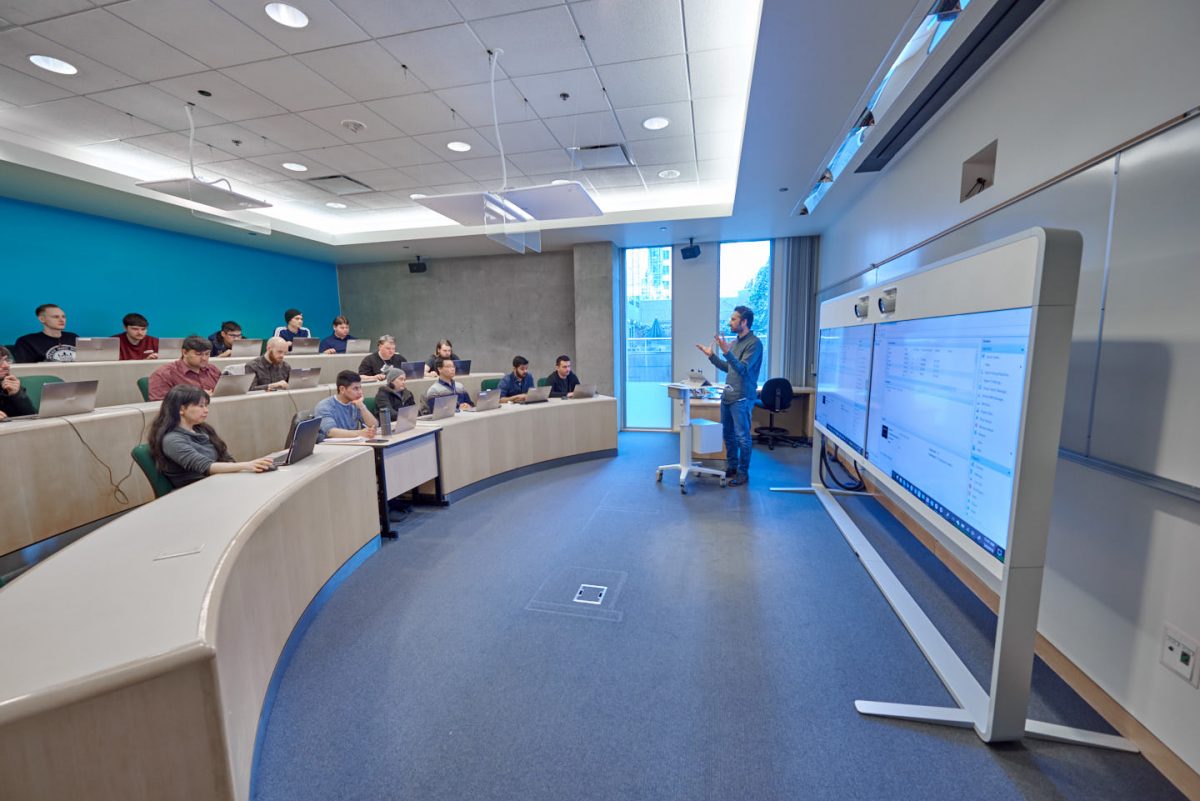Tech jobs have a lot of flexibility, so why not build that into the training?
That’s one of the questions Orrett Morgan, the BCIT High Tech Professional Programs Program Head, addressed as he worked to transition the Technology Support Professional Industry Partnership Certificate Program (TSP) from a traditional face-to-face classroom program into a blended online model last year.
The 40-week program trains students with no previous background or education in computing, along with those who need to re-train or upgrade their present skills.
New blended model
Students now have the flexibility to complete the program with face-to-face and online classes, minimizing time in the classroom. Students begin with a “residency” where they are on-campus for a week.
“They get to know each other, and we help them get connected using whatever tools we want them to use,” explains Orrett. “We’ve also tailored the environment for modern mobile learners.”

The format very flexible, with some students choosing to study mostly in-person and others online. Within this expanded accessibility, the program is still meeting the same outcomes and requirements. The focus is on self-paced mastery, not marks, where students can finish and attain vendor certifications at different times.
Student-focused philosophy of learning
Orrett describes the learning philosophy behind the changes: “when we force students into the mold of who is ahead, who is behind; it’s not always a fit – what we’re trying to create is flexibility to support individual lifelong learning using modern tools.”
The program change was inspired by Mobile Learning Theory– which is centered around the idea that learners are on the move and learning is taking place outside the classroom and other nimble theories of education that embrace ubiquity and flexibility. Students all use the same laptop, and connect with instructors and each other in various ways including in-person, using collaborative online tools such as Slack, Webex, email, Skype, and many more.
There is also a new emphasis on critical thinking and problem solving, which is essential to working in a tech-support field. There’s also time spent on self-care and time management, as well as an awareness of the strength in team diversity.
A successful first cohort
Ultimately, he says the program’s strength comes down to the basics – ensure the students grasp these and then master additional concepts at their own pace. He’s pleased with the results of the first class and feels the change has reduced unnecessary stress for students, as well as nurtured learner engagement.
Bottom line: “it’s better for students, more tied to future jobs, and has a wider reach for greater accessibility.”
Shown in top photo: TSP instructor Rajen Deol in the newly renovated Downtown Campus classroom which accommodates off-site students [Photo credit: Scott McAlpine]
